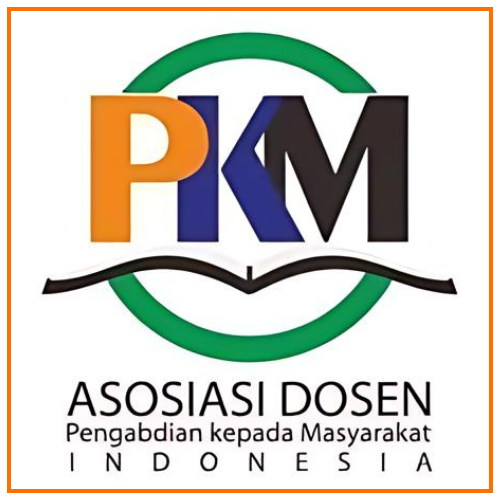Teaching Vocabulary Using Flash Cards in Indonesian ESP Classroom: A One-Shot Case Study
Abstract
Keywords: Teaching Vocabulary; ESP; Flash Card.
Full Text:
PDFReferences
Afzal, N. (2019). A study on vocabulary-learning problems encountered by BA English majors at the university level of education. Arab World English Journal (AWEJ), 10(3).
Al Zahrani, S. M. & Chaudhary, A. (2022). Vocabulary Learning Strategies in ESP Context: Knowledge and Implication. Arab World English Journal (AWEJ), 13 (1). http://dx.doi.org/10.2139/ssrn.4085859.
Asvio, N. (2022). The influence of learning motivation and learning environment on undergraduate students’ learning achievement of management of Islamic education, study program of IAIN Batusangkar In 2016.
Dakhi, S., & Fitria, T. N. (2019). The principles and the teaching of English vocabulary: A review. Journal of English teaching, 5(1).
Dilshad, M., Nausheen, M., & Ahmed, Z. (2019). Impact of students’ motivation for learning English on their achievement at secondary level. Pakistan Journal of Social Sciences (PJSS), 39(2), 689-696.
Duong, T. M. (2022). Insights into ESP Vocabulary Learning Strategies Used by Vietnamese Tertiary Students. Journal of Language and Education, 8(1), 40-51.
Fadel, C. (2008). 21st Century skills: How can you prepare students for the new Global Economy? In Partnerships for 21st century skills. https://www.oecd.org/site/ educeri21st/40756908.pdf.
Fitria, T. N. (2020). Teaching English for Specific Purposes (ESP) to the Students in English Language Teaching (ELT). Journal of English Teaching Adi Buana, 5(01).
Furlong, V. J. (2020). Interaction sets in the classroom: towards a study of pupil knowledge. In Life in School (pp. 145-159). Routledge.
Fraenkel, J. R., Wallen, N. E., & Hyun, H. H. (2009). How to Design and Evaluate Research in Education (11th Ed.). McGraw-Hill.
Hanim, F., Nurdyansyah, N., & Ruchana, S. (2020). Effect of Pedagogical Competence and Work Motivation on the Performance of Educators in SMP Muhammadiyah 4 Gempol. Proceedings of The ICECRS, 6.
Hummel, K. M. (2021). Introducing second language acquisition: Perspectives and practices. Willey Blackwell.
Inozemtseva, K., Kirsanova, G., Troufanova, N., & Semenova, Y. (2018). Using Thinglink Digital Posters in Teaching Esp to Business and Economics Students (A Case Study of Bauman Moscow State Technical University). In ICERI2018 Proceedings (pp. 3487-3492). IATED.
Ishchuk, N., & Shevchuk, S. (2022). USING VOCABULARY GAMES IN ONLINE TEACHING ESP. Collection of scientific papers «ΛΌГOΣ», (October 14, 2022; Oxford, UK), 93-94.
Kamil, M. L., & Hiebert, E. H. (2005). Teaching and learning vocabulary. Teaching and learning vocabulary: Bringing research to practice, 1, 76-77.
Kavari, K. E. (2014). Teaching vocabulary in ESP contexts through vocabulary learning strategies instruction. Asian Journal of Research in Social Sciences and Humanities, 4(2), 247-256.
Komachali, M. E., & Khodareza, M. (2012). The Effect of Using Vocabulary Flash Card on Iranian Pre-University Students' Vocabulary Knowledge. International Education Studies, 5(3), 134-147.
Lehr, F., Osborn, J., & Hiebert, E. H. (2004). A focus on vocabulary. Pacific Resources for Education and Learning.
Lessard-Clouston, M. (2013). Teaching Vocabulary. TESOL International Association.
Luo, J., & Garner, M. (2017). The challenges and opportunities for English teachers in teaching ESP in China. Journal of Language Teaching and Research, 8(1), 81.
Makhmudovna, K. G. (2022). Creative Strategies to Improve Vocabulary Teaching. American Journal of Social and Humanitarian Research, 3(10), 259-261.
Marcu, N. A. (2020). Designing functional ESP (English for specific purposes) courses. Procedia manufacturing, 46, 308-312.
Marzuki, A. G., Santiana, A. K., Alek, N. F., Darmawati, B., & Bin-Tahir, S. Z. The Teaching of EFL Vocabulary through Anticipatory Learning Strategy in Islamic Higher Education Context in Indonesia.
Menggo, S. (2022). Strengthening 21st-Century Education Themes in ELT Material for ESP Students. VELES Voices of English Language Education Society, 6(1), 25-40.
Miles, M. B., Huberman, A. M., & Saldana, J. (2014). Qualitative Data Analysis: A Method Sourcebook (3rd Ed.). SAGE.
Murkatik, K., Harapan, E., & Wardiah, D. (2020). The influence of professional and pedagogic competence on teacher’s performance. Journal of Social Work and Science Education, 1(1), 58-69.
Nakata, T. (2019). Learning words with flash cards and word cards. In The Routledge handbook of vocabulary studies (pp. 304-319). Routledge.
Qian, D. D., & Lin, L. H. (2019). The relationship between vocabulary knowledge and language proficiency. The Routledge handbook of vocabulary studies, 66-80.
SpellQuiz. (2020). Designing A Vocabulary Rubric for Evaluating the Language Skills. https://spellquiz.com/blog/vocabulary-rubric.
Subakthiasih, P., & Putri, I. G. A. V. W. (2020). An analysis of students’ motivation in studying English during COVID-19 pandemic. Linguistic, English Education and Art (LEEA) Journal, 4(1), 126-141.
Susanto, R., & Rachmadtullah, R. (2019). Model of pedagogic competence development: Emotional intelligence and instructional communication patterns. International Journal of Scientific and Technology Research, 8(10), 2358-61.
Susilawati, S., & Supriyatno, T. (2020). Online learning through WhatsApp group in improving learning motivation in the era and post pandemic COVID-19. Jurnal Pendidikan: Teori, Penelitian, dan Pengembangan, 5(6), 852-859.
Uchihara, T., & Webb, S. (2022). Materials for teaching vocabulary. In The Routledge Handbook of Materials Development for Language Teaching (pp. 202-217). Routledge.
Ulashevna, O. G., & Bakhtiyorovna, M. Z. (2022). The Importance of Teaching and Learning Vocabulary. Web of Scientist: International Scientific Research Journal, 3(4), 1029-1033.
Widoyoko, E. S. (2012). Teknik Penyusunan Instrumen Penelitian. Yogyakarta: Pustaka Pelajar.
Wragg, T. (1999). An Introduction to Classroom Observation (2nd Ed.). Routledge.
Xhaferi, B. (2009). Teaching and learnig ESP vocabulary. LFE: Revista de lenguas para fines especÃficos, (15), 229-255.
Yuldashevna, Z. D. (2021). Teaching Vocabulary for Esp Students. International Journal of Human Computing Studies, 3(2), 53-57.
DOI: https://doi.org/10.37058/jelita.v2i1.6466
Refbacks
- There are currently no refbacks.








Journal of Education, Language Innovation, and Applied Linguistics
Lembaga Penelitian, Pengabdian Kepada Masyarakat dan Penjaminan Mutu Pendidikan (LP2M-PMP) Universitas Siliwangi
Jalan Siliwangi Number 24, Kota Tasikmalaya - 46115
West Java, Indonesia











